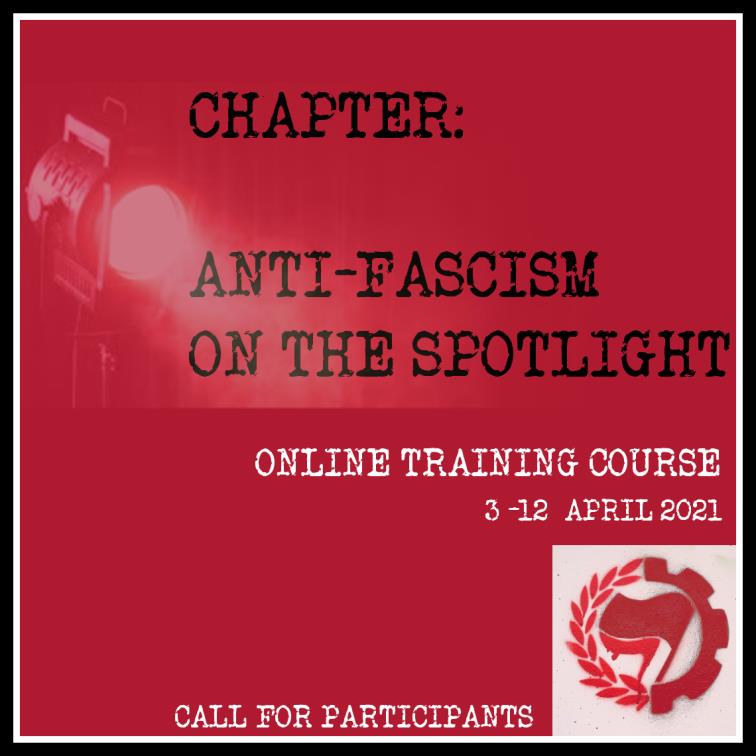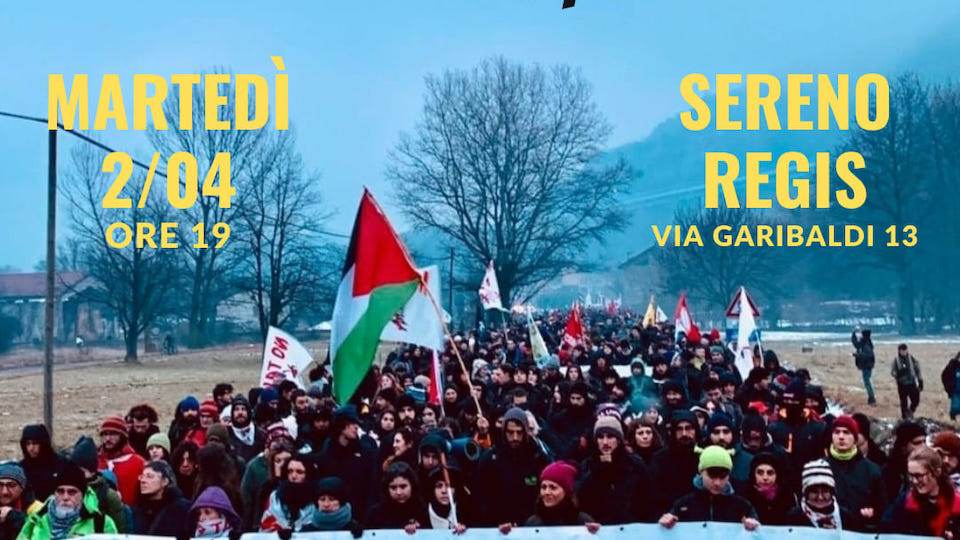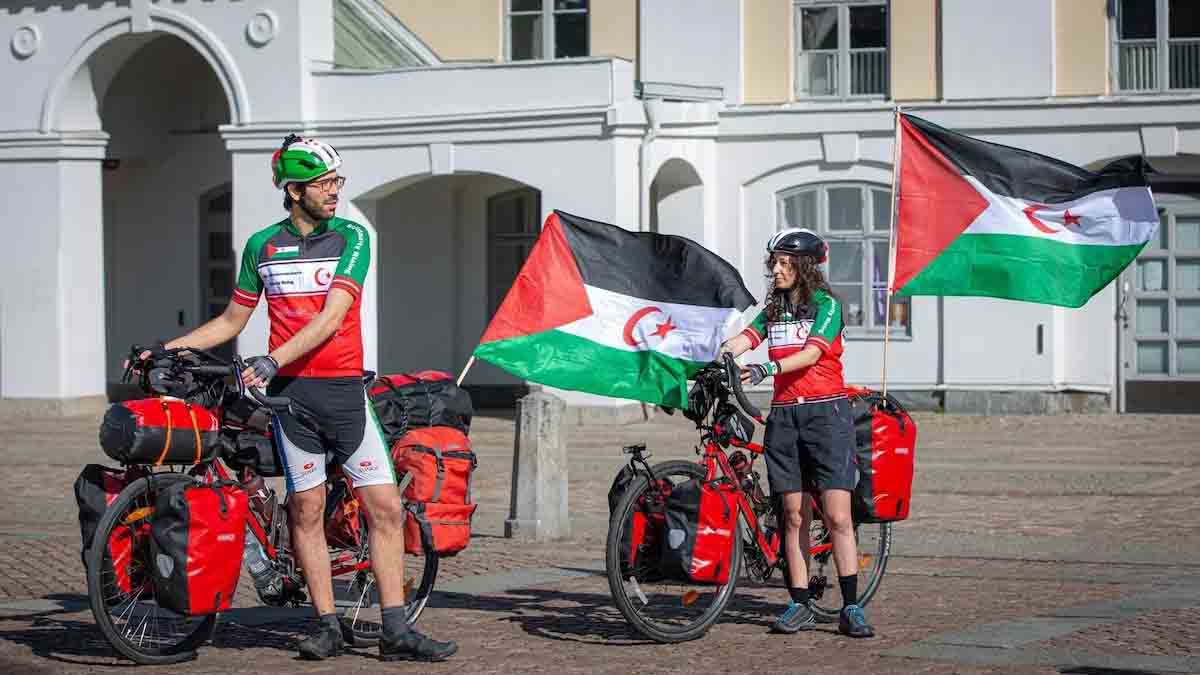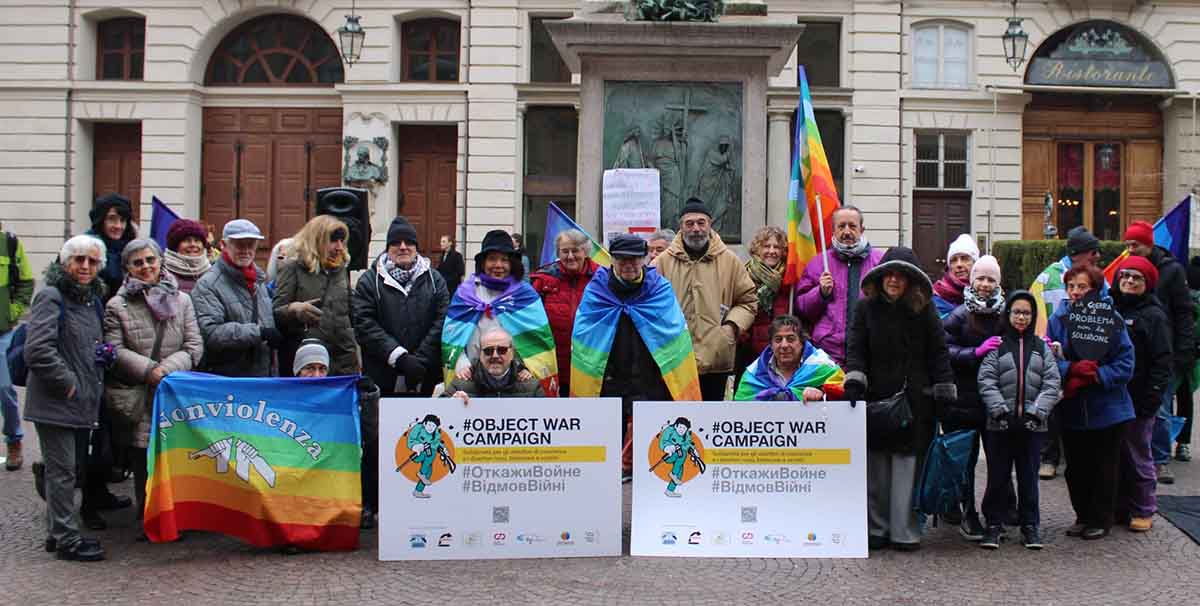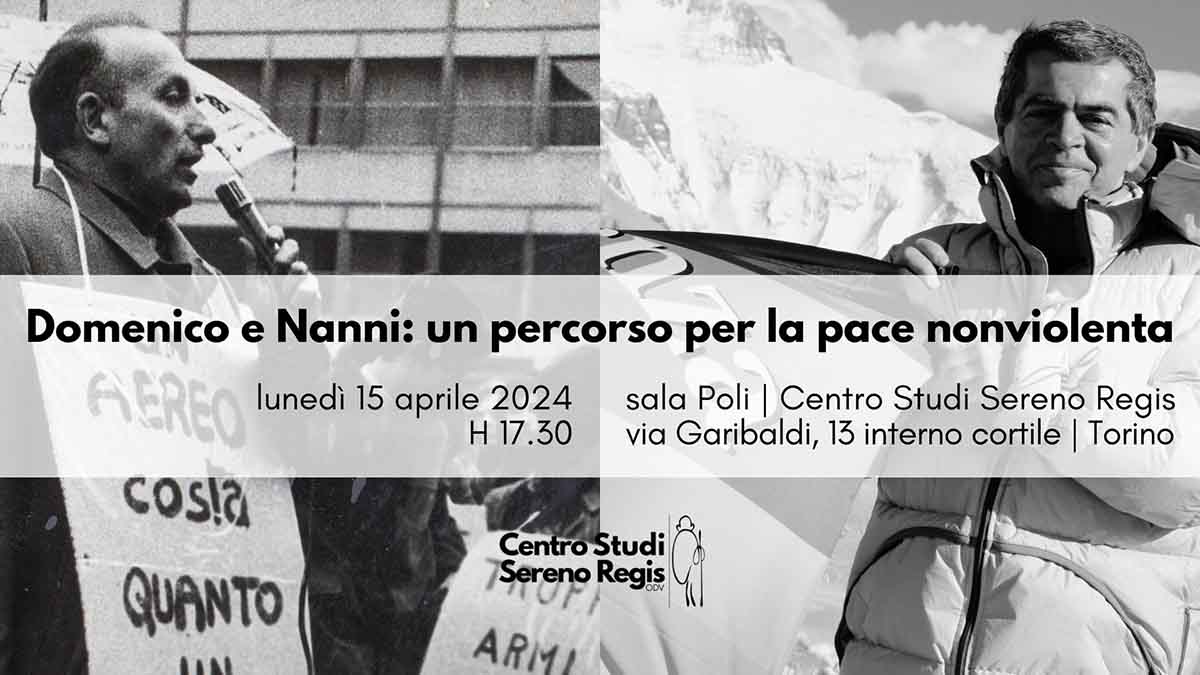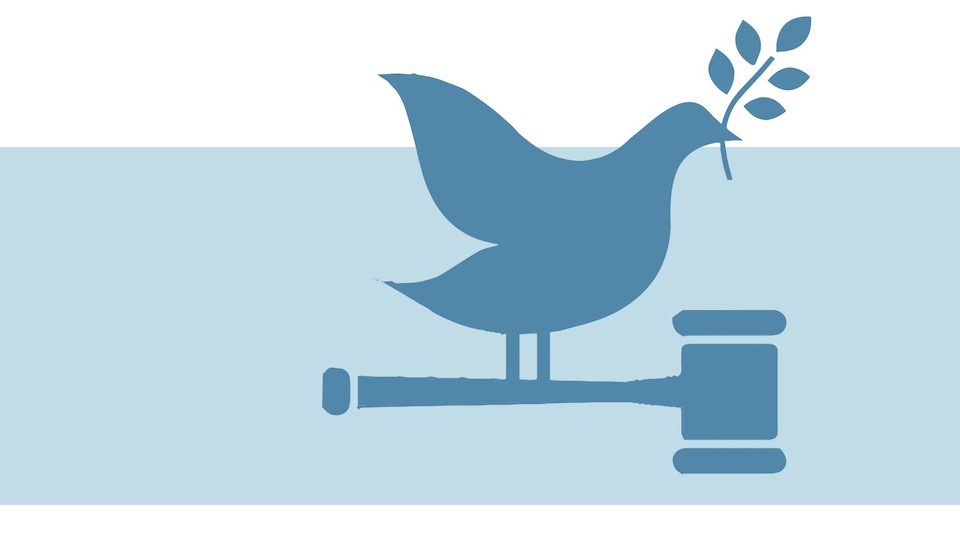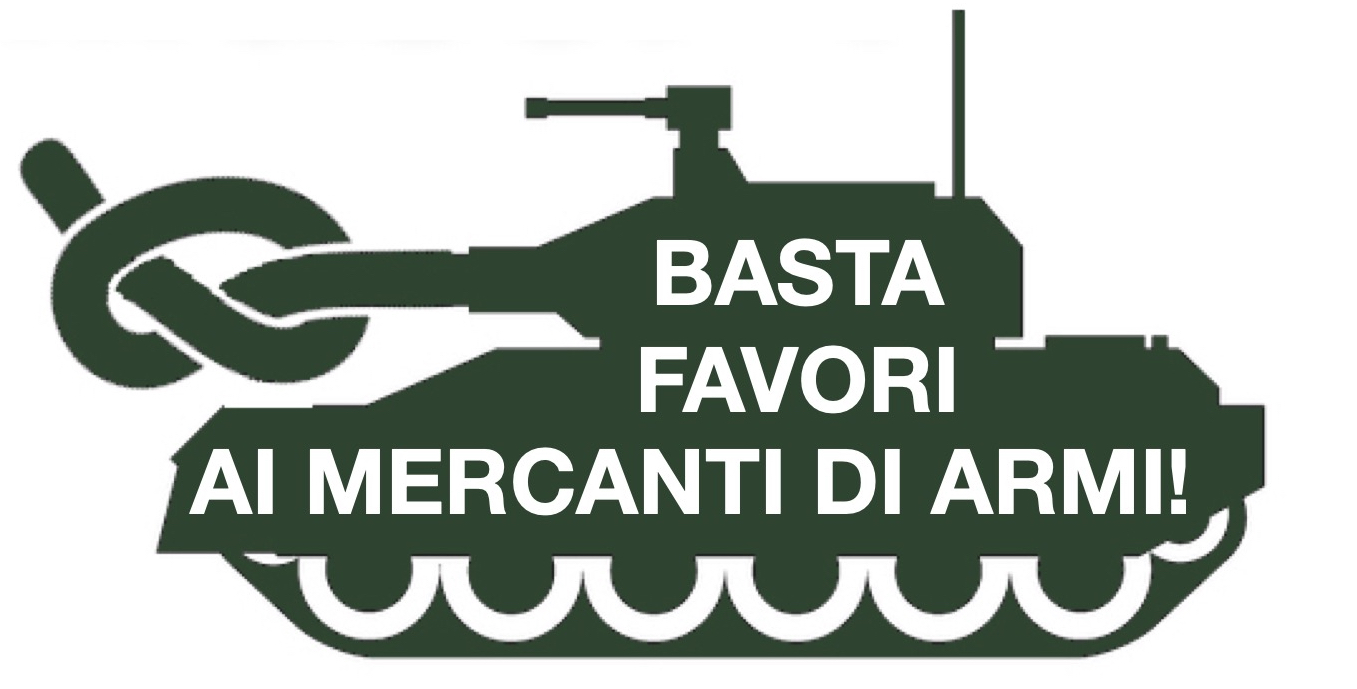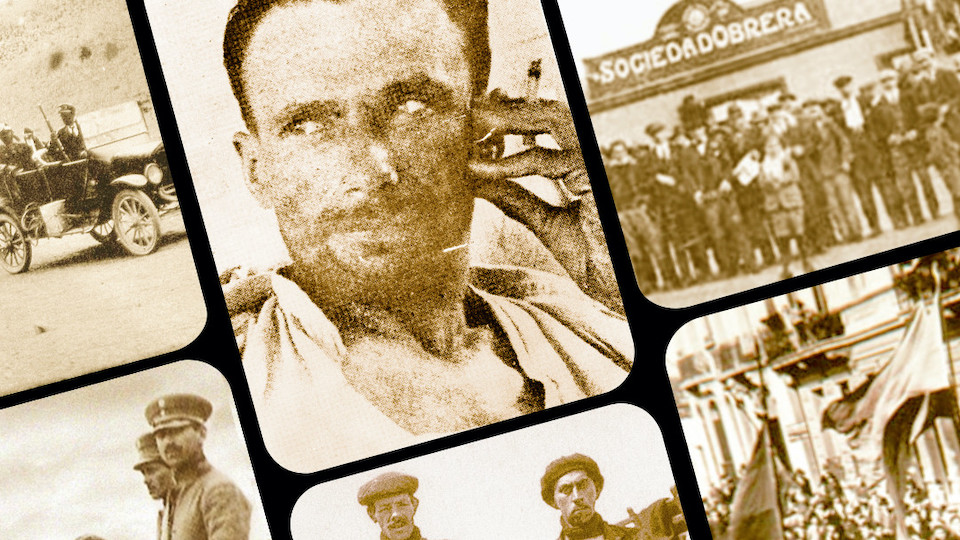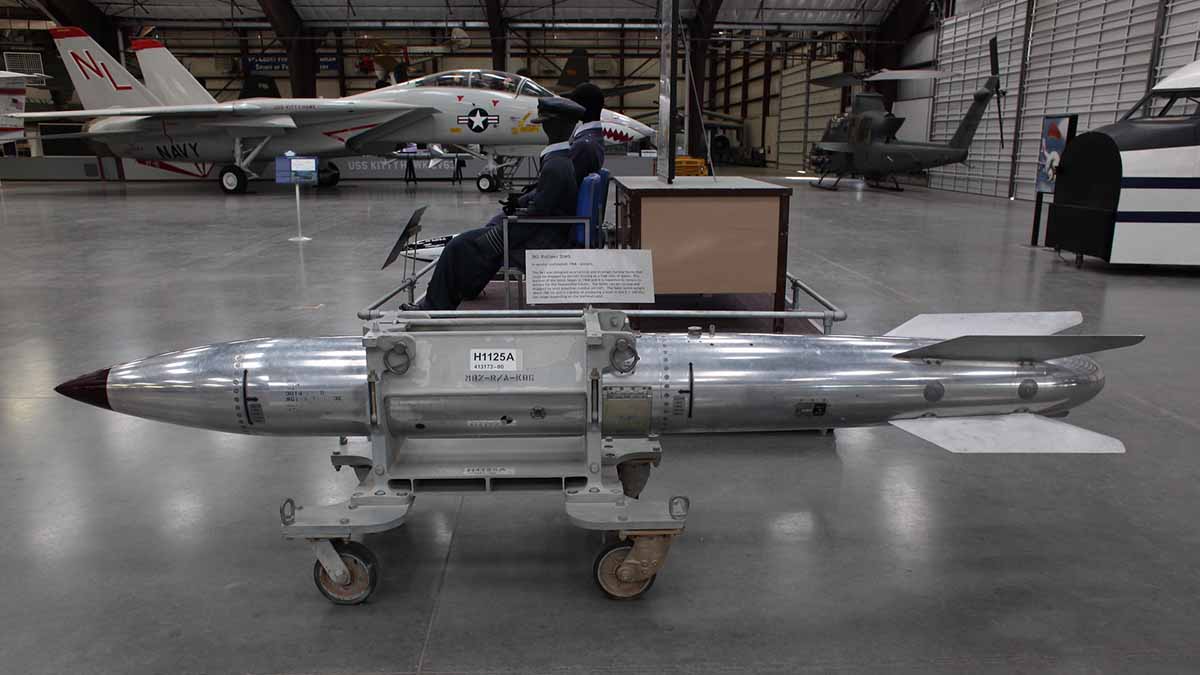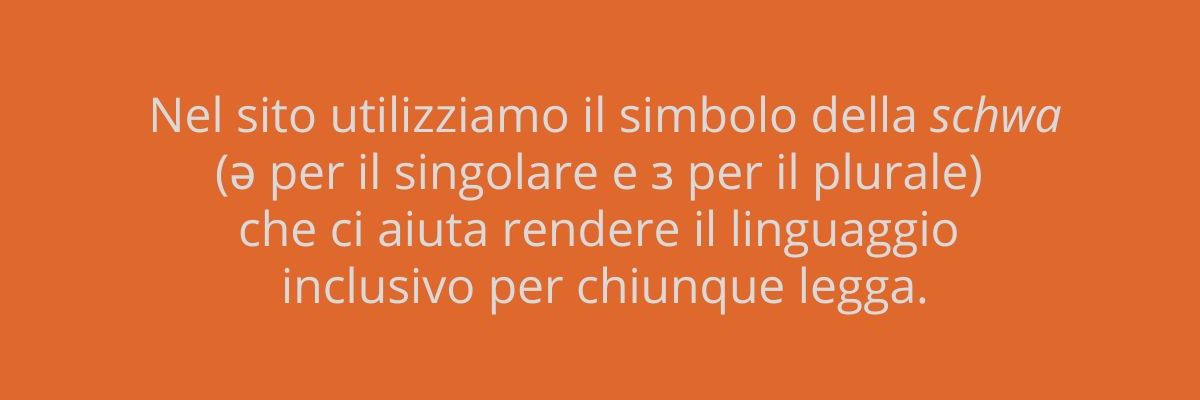CHAPTER. Challenging Propaganda through Remembrance
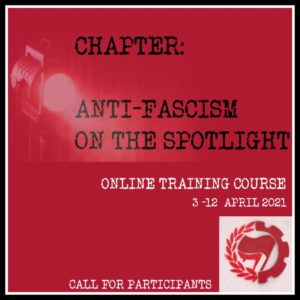 We would like to invite you to participate in the Online Training Course “CHAPTER: Anti-fascism on the Spotlight” which will gather 25 representatives of organisations from 9 countries – Austria, France, Germany, Greece, Hungary, Italy, Poland, Spain and Bulgaria. Participants from other EU program countries are also welcome to apply. The training is designed for active volunteers who are eager to learn more on the topic of anti-fascism and later apply their knowledge in three types of project activities: Remembrance weeks, a Research and a Campaign.
We would like to invite you to participate in the Online Training Course “CHAPTER: Anti-fascism on the Spotlight” which will gather 25 representatives of organisations from 9 countries – Austria, France, Germany, Greece, Hungary, Italy, Poland, Spain and Bulgaria. Participants from other EU program countries are also welcome to apply. The training is designed for active volunteers who are eager to learn more on the topic of anti-fascism and later apply their knowledge in three types of project activities: Remembrance weeks, a Research and a Campaign.
The project
CHAPTER. Challenging Propaganda through Remembrance
This online training is part of a series of activities within the project CHAPTER. Challenging Propaganda through Remembrance.
Key words/topics:
- Remembrance
- Propaganda and media
- Nationalism
- Hatred of the enemy
- Grassroots media
- Pacifism
- Counter narratives
Since 2014 Europe is facing the worst humanitarian crisis of refugees since World War II (WWII), the majority of them fleeing from Syria and Libya, while the economic crisis has been causing cuts to social inclusion, education and healthcare programmes. Make matters worse, populist groups’ media depicts third-country nationals as exploiters of the welfare system while criminalizing civil society organizations in solidarity, thus fuelling social tensions into organized violence against people and institutions. An in-depth analysis shows that current propaganda roots in methodologies and tools developed under totalitarian regimes. Nazism and Fascism emphasized those features characterizing the public discourse during World War I and its aftermath such as nationalism, hatred of the enemy and dehumanization: all of that contributed to lay the groundwork for WWII.
In this sense the project aims to cast a light on propaganda before and during WWII, focusing on its role to enforce the concept of “enemy” – from national and ethnic groups to political opponents and social groups. Participants, chosen among people who aren’t active citizens yet, will act as Remembrance messengers in order to relate past events to current trends. Moreover they’ll draw attention to the role of grassroots media and peace organizations in challenging propaganda through innovative communication methodologies and tools.
The activities of this project are the following:
- Prep-meeting, focused on project management and organization 15 participants – Rome, Italy – 8 days –13th – 16th December 2019
- Online transnational training for multipliers 25 participants – 10 days – 3-12 April 2021
- 5 Remembrance Weeks (thematic workcamps)– 25 participants – 10 days – 5 countries:
- Italy (14th-23rd of June 2021)
- Poland (25th of June – 4th of July 2021)
- Greece (25th of July – 3rd of August 2021)
- Austria (8th – 13th of August 2021)
- Catalonia (23rd of September – 3rd of October 2021)
- Final conference (+ evaluation and follow-up meeting) – Rome, Italy – 4 days – 5th – 8th of November 2021
Outputs:
- 10 Set of Infographics related to the outcomes of the Remembrance Weeks, showing the main features of propaganda
- Animated infographics and video summarizing the project
- Project website
- Online campaign
About the Training Course “CHAPTER: Anti-fascism on the Spotlight”
The online training will gather 25 participants, nominated by the partner organizations, who are interested in the topic, politically and/or socially active and available for (at least) one of the Remembrance weeks, described above. The training aims to build and train a group of experienced multipliers (remembrance messengers) and remembrance week coordinators, set up a research on the topic and define contents of the Remembrance weeks within the project.
The training is designed to prepare the future Remembrance messengers and Remembrance Weeks’ coordinators, providing them with practical and theoretical knowledge on the topic of anti-fascism. Apart from being introduced to research methodologies and communication/anti-propaganda tools, they will learn how to use non-formal education tools in order to reflect on the following main questions:
- What do we understand by “fascism”? Where does it come from, why does it appear and why do people fall in its net?
- What history tells us about fascism?
- What are the current trends and why far right wing parties/movements are rising across Europe? What are the effects of globalisation on the new forms of fascism?
- How to deconstruct the narrative of “them vs. us”?
- Which psychosocial mechanisms are involved in fascism and populism? What do fascist speeches have in common?
- What are the effects and consequences of fascism in our societies?
- Why must we fight fascism? What’s the role of activism and peace organizations?
- What new communication methodologies and tools are used to fight fascism?
The specific goals of this training are as follows:
- To train a group of messengers and coordinators who will lead the following Remembrance Weeks in each of the partner countries and organisations;
- Gain and share knowledge on the basic concepts, history and theories around the topics of fascism and anti-fascism, based on meeting with experts, peer learning and self-assessment techniques;
- Develop critical thinking on the topic of fascism, to be able to recognize fallacies in speech and identify the signs of extremism;
- Developing the competences of the participants to plan, organize and implement educational activities on anti-fascism;
- Develop tools to work on prevention or to react in cases of fascism, hate speech, exclusions or violence (online and offline);
- Learn new tools on how to develop and implement a campaign based on previous examples;
- To conduct a research on all materials that can be useful and relevant to the specific tasks of the training and gather them ;
- To create a toolkit with all useful information at the end of the training, which can be used in the following Remembrance Weeks;
- Create a bond and ground for international cooperation and
Dates, platform, methodology, experts’ team and draft program of the training course
The training will take place from 3rd to 12th of April 2021 and the team will use the ZOOM platform to interact between 2 and 4 hours daily in the mentioned period.
Within 10 working days (the program envisages 2-4 working hours per day, using non- formal learning methodology) the group will be able to:
- gather a collection of coordination tools, which will be used for the activities during the Remembrance Weeks
- collect materials on the topic from the different national contexts
- define the scope and framework of a research on the topic, receive tips on research methodologies
- set the outlines of a media campaign on the topic
- contribute to the report of the
The participants are required to be available for the whole duration of the training, taking part in all the plenary and small group sessions, as well as pair and individual tasks. The methods used during the training will follow the non-formal learning methodology: working in small groups, discussions in plenary, brainstorming, presenting, role play, simulations, etc. The team of trainers will consist of international experienced trainers, facilitators and experts.
The selected participants will receive the training program, trainers profile info and some individual small tasks to complete prior to the start of the activity.
Partner countries and organisations
- Service Civil International Österreich – Austria
- CVS-Bulgaria – Bulgaria
- Service Civil International Hellas – Greece
- Servizio Civile Internazionale Italia – Italy
- Centro Studi Sereno Regis – Italy
- Stowarzyszenie Jeden Swiat – Poland
- Servei Civil Internacional de Catalunya Asociacion – Spain
- Le Service Civil International – France
- Service Civil International – Deutscher Zweig E.V. – Germany
- Utilapu Nemzetkozi Epitotabor Halozat Egyesulet – Hungary
- DINAMOpress – Italy
- UNITED for Intercultural Action – Hungary
Participants from other EU program countries are also welcome to apply however priority will be given to candidates from the project partner countries.
Profile of the participants
The profile of the candidate should be the following:
- Age 18+
- Able to understand and express themselves in English;
- Politically or/and socially active;
- Have and/or willing to gain experience in coordinating international activities (such as Workcamps, Peace weeks or Remembrance Weeks) and ready to organize the Remembrance week in their country on the topic of the project;
- Committed to attend for the full duration of the online training
- Volunteers, activists and youth workers/coordinators who want to learn more about innovative communication methodologies and effective tools to protect refugees and national minorities from organised violence;
- Willing to learn more about the evolution of fascism, effects and consequences of the ideology in the current situation;
- Willing to share experiences and stories from their local environment, family, friends and school (university) regarding to unfair attitude to refugees, national minorities and other;
- Willing to be open-minded and eager to learn from the workshops in this activity and from their peers, as well as maintain a positive attitude and a critical approach to the problematics and topics that will be reviewed;
- Are committed to assist or take the lead role in planning and implementing local initiatives in order to disseminate the learning
Certificates
All participants will receive a certificate upon successful completion of the training course.
Application procedure
If you are interested in participating, apply by 15 March 2021 filling in the online application form.
The final selection will be done by CVS-Bulgaria, giving priority to candidates proposed by the Partner Organisations as long as their application is submitted within the deadline and the candidates profile fits with the participants profile envisaged in this call. Selected participants will be informed by 20 March 2021. All applicants will be informed about the final decision.
You can reach us on the following e-mail: [email protected] if you have further questions.


